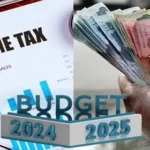The atmosphere surrounding Pakistan Tehreek-i-Insaf (PTI) is becoming more and more confused, frustrated, and fearful among its supporters as the elections on February 8th approach. For many supporters of the PTI, what was meant to be a fair and impartial political environment has instead become a nightmare, as they feel cheated out of the chance to actively participate in campaigning and canvassing?
The PTI leadership has encountered fierce opposition to its attempts to call workers’ conventions and corner meetings, which has taken the form of police raids, the looting of party headquarters and leaders’ homes, and the imprisonment of supporters. The PTI argues that a lack of equal opportunities for all parties would not only be unacceptable to the majority of Pakistanis but also damage the country’s reputation abroad, which raises questions about the fairness of the next elections.
Anwaarul Haq Kakar, the acting prime minister, and the Election Commission of Pakistan (ECP) both maintain that PTI is permitted to run in the elections. The actual situation, meanwhile, glaringly contradicts these promises. Police raids have been caused by the civil administration’s obviously rash replies to PTI’s requests to organise workers’ conventions or corner meetings, which has made it more difficult for the party to mount a strong campaign.
With important members of the PTI’s leadership—including Chairman Imran Khan—in jail, hiding, or splitting up after severe pressure, the party is in a difficult situation. The party’s insistence that people “take revenge with the power of their votes” highlights how serious the situation is.
Some claim that PTI’s current vulnerabilities are a result of the core leadership’s prior affiliation with the establishment, while others credit PTI’s situation to a lack of preparation and development of mid-tier leadership. PTI leaders emphasise that the measures enforced against their party constitute one of the harshest crackdowns on any political group in recent memory, regardless of the reason behind it.
Aamer Mughal, the central deputy secretary for information at PTI, draws attention to the infringement of legal and constitutional rights and notes that rulings upholding fundamental and political rights are being disregarded. He issues a warning, stating that a PTI-free election will damage the party’s reputation and fuel chaos, unrest, and unstable economic conditions.
Omar Ayub Khan, the secretary general of the PTI, shows the party’s dedication to upholding the supremacy of the law and the constitution. He and other party members, however, think that the state is manipulating the results of the pre-election to keep PTI from winning. Even with the government’s denials, there are still a lot of unresolved issues because it is unclear how the party intends to stay relevant in the face of these obstacles.
The public’s growing enthusiasm for PTI is being eclipsed, however, by the concern that the party is not being given equal opportunity to mobilise resources and run campaigns. Confusion surrounding the impending elections casts doubt on the new government’s acceptability and its capacity to guarantee a fair voting process. The delicate balance between political competition and democratic norms is under jeopardy as Pakistan approaches this momentous juncture.
Author: Faisal Waqas





























